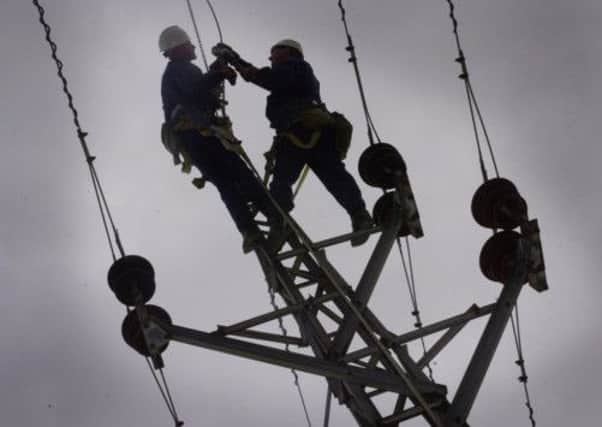‘Ofgem must turn spotlight on big energy firms’


Sir Robert Smith, Liberal Democrat MP for West Aberdeenshire and Kincardine, and speaking on behalf of the committee, said: “At a time when many people are struggling with the rising costs of energy, consumers need reassurance that the profits being made by the ‘big six’ are not excessive.
“Unfortunately, the complex vertically integrated structure of these companies means that working out exactly how their profits are made requires forensic accountants.
Advertisement
Hide AdAdvertisement
Hide Ad“Ofgem should shine a brighter light on the internal structure of these big companies.”
Andrew Wright, Ofgem’s new chief executive, was heavily criticised by committee chairman Tim Yeo in May after he ruled out forcing energy companies to be more transparent about their profits, claiming it would be “expensive and intrusive” to implement such legislation.
The report also reprimanded the government for not doing enough to help the millions of low-income families living in poorly insulated homes, struggling in “fuel poverty”.
Spending on the problem has been cut in England and some of the government’s fuel poverty programmes appear to be in “hiatus”, it was reported.
Members of the committee argued that to help protect the most vulnerable, more programmes should be funded through direct taxation rather than levies.
Average dual energy bills now stand at more than £1,400 a year, which has pushed many consumers into fuel poverty, which is when people spend more than 10 per cent of their income on heating and powering the home.
SSE, formerly Scottish & Southern Energy, reported pre-tax profits of £1.4 billion in May – up 5.6 per cent on 2011.
ScottishPower, owned by Spanish utility Iberdrola, posted pre-tax profits of £712 million earlier this month, twice the £350m it made in 2011.
Advertisement
Hide AdAdvertisement
Hide AdA spokesman for SSE insisted that customers “can see exactly what profits we are making and where they are made”.
He said: “We aim for an average profit margin in energy supply of around 5 per cent over the medium term as we believe this is a fair and sustainable level.” He added that SSE backed funding government policies through taxation would instead of requiring energy companies to recoup the costs through bills.
Richard Lloyd, Which? executive director, said: “Hard-pressed consumers consistently tell us that the spiralling cost of their energy bills is one of their top financial concerns, with energy companies trusted by fewer than a quarter of their customers.
“The government and regulator must do more to rebuild trust in the suppliers and to keep prices in check.”
Edward Davey, energy and climate change secretary, said: “We are using the energy Bill to ensure that all households will be able get the best deal for their gas and electricity as soon as possible. This means getting people off poor-value dead tariffs, cutting the number of tariffs and giving consumers clear personalised information on their bills so they can compare and switch supplier.”
Angela Knight, chief executive of Energy UK, which represents the industry, said: “We take the criticisms and recommendations in this report seriously and, as it recognises, we have gone a long way in improving the information we provide.”
Ms Knight, a former chief executive of the British Bankers Association, added: “We recognise there needs to be open and honest dialogue between all parties and that customers understand their bills also include the cost of the distribution system as well as the environmental and social levies.”